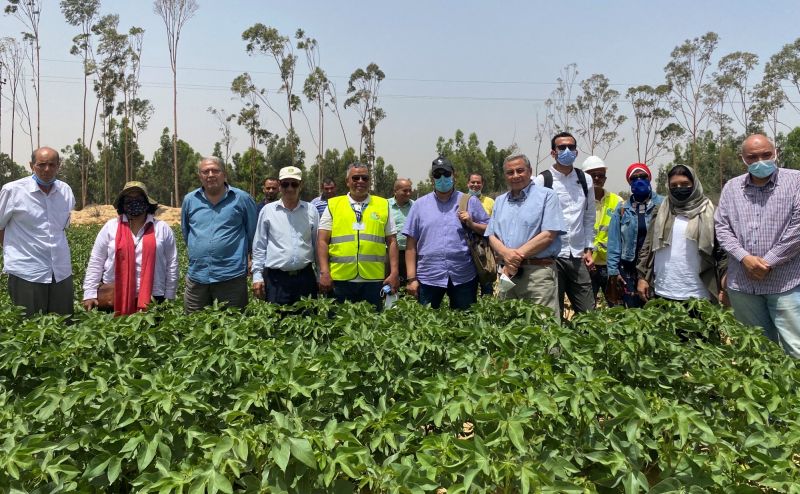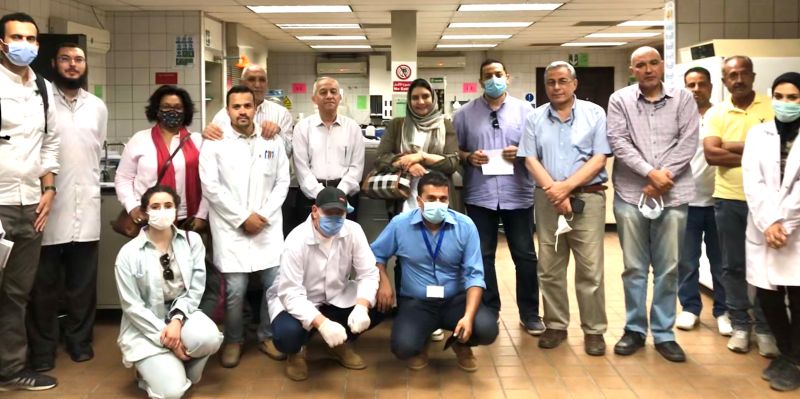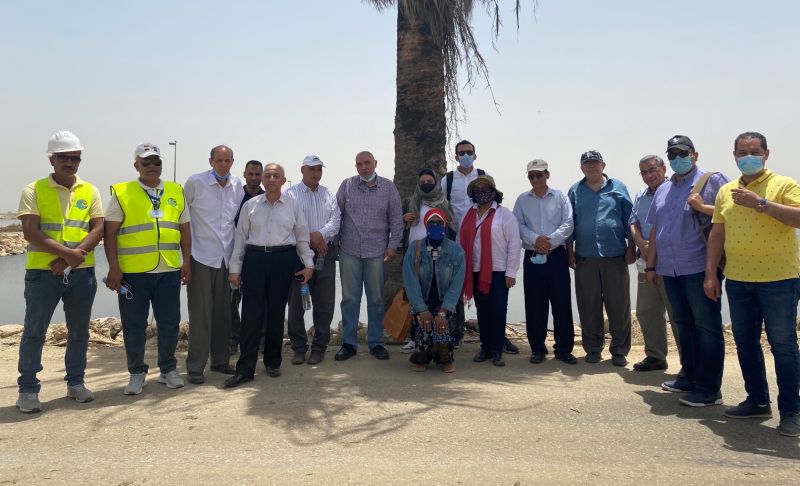SIDA delegation field visit to Sarapium Wastewater Treatment Plant (WWTP) in Ismailia, Egypt - ReWater MENA project

Wastewater: From Waste to Resource
A delegation from the Swedish International Development Cooperation Agency (SIDA), accompanied by ReWater MENA project team, conducted a field visit to Sarapium Wastewater Treatment Plant (WWTP) in Ismailia on May 31st 2021, to follow up on the activities implemented in the experimental site of Sarapium as part of ReWater MENA, which SIDA has supported since 2018; and to better understand the wastewater reuse context and agricultural practices in Egypt.
The field visit was facilitated by the International Center for Agricultural Research in the Dry Areas (ICARDA), which is responsible for developing the reuse models in Egypt under ReWater MENA Project. The delegation met with ICARDA team and Consultants who gave scientific background on the site and presented the reuse model by showing the experimental design and result of planting wheat and barely during the winter season; and the on-going experiment on cotton. Through ReWater MENA project, ICARDA aims to build on the success of previous projects by introducing relevant cash field crops, to offer additional reuse options to the existing trees and demonstrate different direct reuse models to enhance the financial and environmental benefits of reuse

Prof. Abdel Ghany, one of ICARDA Consultants appointed to develop the reuse models in Egypt, mentioned that "the study applied on this experimental site aims to promote the direct reuse of treated wastewater, which meet the national code for reuse, for irrigating certain types of crops (Wheat, Barely – Cotton) in Egypt and potentially in the MENA region, thereby enhancing sustainable use of scarce water resources, in an economically efficient and environmentally safe way".
"This is the first experiment that ensures product safety and identifies the most suitable technique that increases the yield and the quality of different crops; it estimates the water use efficiency for the different crops and identifies the most appropriate irrigation system. It also investigates the impact of mycorrhiza on the growth of the different crops which is 15% higher on yield compared to control plots of wheat and barley that were irrigated by treated wastewater only", said by Prof. Abdel Ghany.
The group was joined by Dr. Rifaat Abdel Wahab, the Head of Research & Development Sector at the Holding Company for Water and Wastewater (HCWW), who assured on the importance of ReWater MENA project as one of the most strategic projects in the area of wastewater reuse. He said that ReWater MENA project touched very important area to investigate the applicability of the new wastewater reuse code 501/2015, long term impact on soil and crops. He also added, the project highlighted on the pressing need to MENA countries to shift from forest plantation to industrial and edible crops with short return on the investments.
Strengthening the networking between the stakeholders and governmental officials in wastewater reuse programs has been seriously considered in ReWater MENA project through the National Steering Committee (SC) and National Learning Alliance (NLA), mentioned by Dr. Abdel Wahab. The intensive programs of capacity building in this area are of considerable value to Egypt and also other MENA countries. In addition, case studies documentation in both direct and indirect reuse application which can be used as platform and guidance for replication in other areas and governorates in Egypt. He concluded, the project is planning to develop a ‘Business Model’ that can stimulate and enhance private sector involvement.

ReWater MENA project is funded by the Swedish International Development Cooperation Agency (SIDA), and led by the International Water Management Institute (IWMI). The project seeks to expand the safe reuse of treated wastewater directly and indirectly in MENA region by addressing barriers to reuse and identifying validated reuse models, in addition to optimizing the potential contribution of such valuable non-conventional water sources to meet the country's water needs in a sustainable manner taking into consideration the socio-economic developments and environmental protection. The project also highlights the several potential benefits of applying wastewater management practices including recovery and safe reuse of this available and sustainable source of water.
